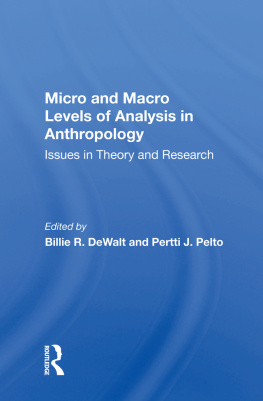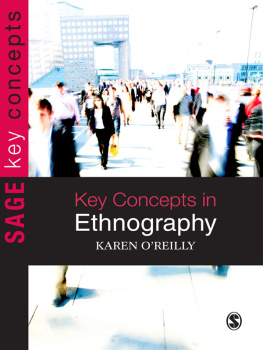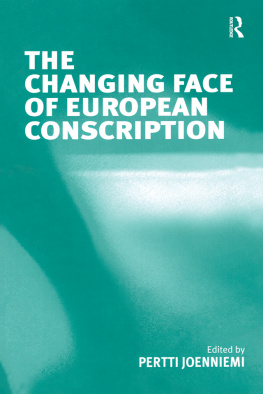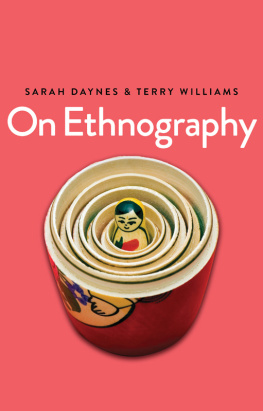
APPLIED ETHNOGRAPHY
DEVELOPING QUALITATIVE INQUIRY
Series Editor: Janice Morse, University of Utah
Books in the Developing Qualitative Inquiry series, written by leaders in qualitative inquiry, address important topics in qualitative methods. Targeted to a broad multi-disciplinary readership, the books are intended for mid-level to advanced researchers and advanced students. The series forwards the field of qualitative inquiry by describing new methods or developing particular aspects of established methods.
SERIES EDITORIAL BOARD
H. Russell Bernard, Kathy Charmaz, D. Jean Clandinin, Juliet Corbin, Carmen de la Cuesta, John Engel, Sue E. Estroff, Jane Gilgun, Jeffrey C. Johnson, Carl Mitcham, Katja Mruck, Judith Preissle, Jean J. Schensul, Sally Thorne, John van Maanen, Max van Manen
BOOKS IN THIS SERIES
1. Autoethnography as Method, Heewon Chang
2. Interpretive Description, Sally Thorne
3. Developing Grounded Theory: The Second Generation, Janice M. Morse, Phyllis Noerager Stern, Juliet Corbin, Barbara Bowers, Kathy Charmaz, and Adele E. Clarke
4. Mixed Method Design: Principles and Procedures, Janice M. Morse and Linda Niehaus
5. Playbuilding as Qualitative Research: A Participatory Arts-Based Approach, Joe Norris
6. Poetry as Method: Reporting Research Through Verse, Sandra L. Faulkner
7. Duoethnography: Dialogic Methods for Social, Health, and Educational Research, Joe Norris, Richard Sawyer, and Darren E. Lund, editors
8. Collaborative Autoethnography, Heewon Chang, Faith Wambura Ngunjiri, and Kathy-Ann C. Hernandez
9. Engaging in Narrative Inquiry, D. Jean Clandinin
10. Participatory Visual and Digital Methods, Alene Gubrium and Krista Harper
11. Fiction as Research Practice, Patricia Leavy
12. Applied Ethnography: Guidelines for Field Research, Pertti Pelto
Applied Ethnography
GUIDELINES FOR FIELD RESEARCH
Pertti Pelto
First published 2013 by Left Coast Press, Inc.
Published 2016 by Routledge
2 Park Square, Milton Park, Abingdon, Oxon OX14 4RN
711 Third Avenue, New York, NY 10017, USA
Routledge is an imprint of the Taylor & Francis Group, an informa business
Copyright 2013 Taylor & Francis
All rights reserved. No part of this book may be reprinted or reproduced or utilised in any form or by any electronic, mechanical, or other means, now known or hereafter invented, including photocopying and recording, or in any information storage or retrieval system, without permission in writing from the publishers.
Notice:
Product or corporate names may be trademarks or registered trademarks, and are used only for identification and explanation without intent to infringe.
Library of Congress Cataloging-in-Publication Data
Pelto, Pertti J.
Applied ethnography : guidelines for field research / Pertti Pelto.
pages cm. -- (Developing qualitative inquiry ; volume 12)
Includes bibliographical references and index.
ISBN 978-1-61132-207-1 (hardback : alk. paper) -- ISBN 978-1-61132-208-8 (pbk. : alk. paper) -- ISBN 978-1-61132-650-5 (consumer ebook)
1. Applied anthropology. 2. Anthropology--Research. 3. Anthropology--Field work. I. Title.
GN397.5.P45 2013
301--dc23
2012050878
ISBN-13: 978-1-61132-207-1 (hbk)
ISBN-13: 978-1-61132-208-8 (pbk)
Book design by Lisa Devenish, Devenish Design
Cover design by Andrew Brozyna
It has been several decades since I last put together a whole book-length compilation about ethnographic research methodology (Pelto 1970; Pelto and Pelto 1978). In the meantime, a great deal has changed in the world of social sciences research. In smaller pieces that I have written, and in my teaching of research methodology in a variety of contexts, I have made many changes in my approaches to field data gathering. In this writing, I will try to express a synthesis of ethnographic approaches, with special emphasis on applied studies in health, education, agriculture, geography, and other topical areas.
However, first I will emphasize what has not changed since I began my professional work. Already a half century ago I emphasized the importance of the qualitative-quantitative mix in ethnographic research. Most applied ethnographic research in the 21st century includes both qualitative and quantitative components, and the distinctions between the two research styles are often blurred. A second basic principle of ethnographic field study is the centrality of in-depth interviews. That has always been a key data-gathering approach in ethnography. Now, in the era of the 21st century, in-depth interviewing has taken on new complexities, as the universal use of personal computers has added new dimensions, especially in the realm of data management and analysis.
Another enduring principle in applied ethnographic research is that our work is a scientific attempt to add to useful knowledge. In many applied research projects the useful knowledge is mainly intended for use in a specific, delimited locationwith a particular ethnic group, for a certain geographic region, or perhaps in only one institutional setting. That is still science; it is still intended to add useful knowledge. But today we all recognize that knowledge is practically never a final product. Additional research will suggest modifications in what we know.
PARTICIPATORY RESEARCH APPROACHES
Participation by members of the communities in which ethnographers do research is not a new concept. However, in recent decades, strategies for developing much more active participation from the researched communities and developing partnerships between researchers and local organizations have taken new forms. The development of PRAwhich originally meant Participatory Rural Appraisaland a wide range of other participatory research acronyms (see Chambers 1997) signaled interesting changes in the styles of applied ethnographic research used around the world. Not that these changes are everywhereI am sure there are still many research projects originating in the developed countries that involve only minimal real participation from the organizations, researchers, and community people at developing nation research sites. However, in many places the patterns are changing toward more egalitarian international collaboration in research projects.
The set of participatory research techniques developed under the PRA banner is worth exploring carefully, as those research tools, such as social mapping, can be very effective in getting new information relatively quickly. Robert Chambers, the chief exponent of the PRA approaches, notes that social anthropologists and others have developed and used some of these methods for many decades. In my view, the technique of social mapping is the most important and widely used item in the PRA repertoire.












